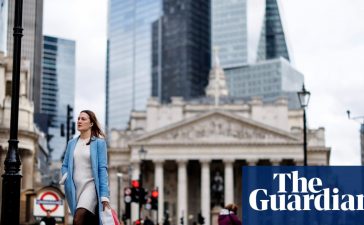One in four Britons say they have fallen victim to a ticket scam involving an in-demand event and lost £82 each on average, according to research issued ahead of the official Glastonbury festival ticket resale.
High demand and low availability, fuelled by “fomo” (fear of missing out), were creating a “perfect storm” for scammers, said Nationwide building society, which commissioned the analysis.
It made the warning as thousands – and potentially millions – of music fans gear up for a second chance to secure entry to this year’s Glastonbury after the bulk of the tickets sold out in 35 minutes in November.
A resale of what could be several thousand cancelled and returned tickets is expected to take place within the next fortnight – last year it was on 18 and 21 April – and demand could be even higher than usual as next year will be a fallow year, meaning there will be no festival , to allow the site to recover.
During the last year or so, several high-profile events created a clamour for tickets, triggering a spate of scams. Months before Taylor Swift’s Eras tour had even reached UK shores last summer, British fans were estimated to have lost more than £1m after tickets went on sale.
Oasis fans who fell victim to scammers in their desperation to secure tickets to the Manchester band’s UK reunion shows this summer lost £346 each on average, according to a Lloyds bank analysis of its own data.
There have also been warnings that fans of Lady Gaga will be targeted after tickets for her forthcoming UK arena tour went on sale on Thursday.
Lloyds bank has previously said more than 90% of reported cases started with fake adverts or posts on social media, and they usually involve people being tricked into sending money via bank transfer. However, many people do not report the crime, often because they are embarrassed about falling victim to a con, or in some cases because the amount involved was relatively small.
The research by Nationwide found that just over half (51%) of those polled would consider buying tickets from “questionable sources” to avoid missing out, increasing their chances of falling victim to fraud. More than a fifth (22%) were “prepared to pay extra due to fomo”.
after newsletter promotion
Those aged 25-34 were the most vulnerable to being scammed. Two in five (40%) of this age group “would knowingly risk buying fake tickets” to secure a spot, said Nationwide.
Jim Winters, Nationwide’s director of economic crime, said: “When offered high-demand tickets that are cheap, or even just available, fans can easily lose control of their senses as their hearts rule their heads.”









